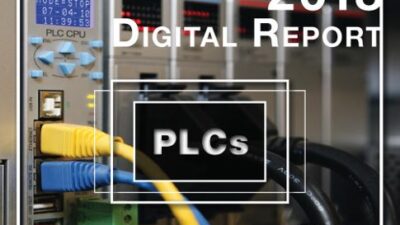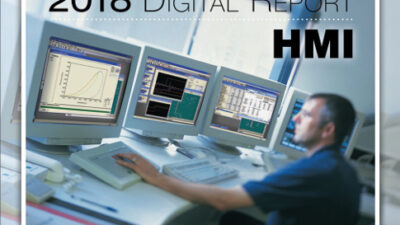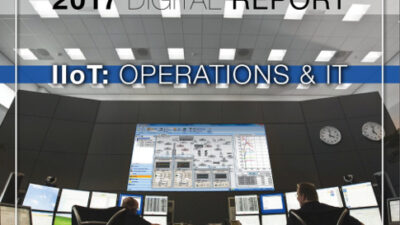Improve operations analysis with ISA 95
The ISA 95 standard defines interfaces between business functions and manufacturing operations functions to allow for improved communication of data between plant floor devices and front office business applications. A major component of ISA 95 is the specification and definition of an array of reports and key performance indicators (KPIs) used in manufacturing operations. These reports and KPIs, which are key products of manufacturing execution system (MES) applications, require real-time data collection from a wide range of systems.
Part 3 of the ISA 95 standard defines the functions performed by MES, as well as other functions typically associated with shop floor operations:
Production data collection;
Production performance analysis;
Production tracking; and
Product definition.
OSIsoft’s Real-time Performance Management (RtPM™) Platform—an events-driven platform that delivers unified, role-based portal views of information across the enterprise for management, engineering, and operations—is designed to provide a best-in-class solution for data collection, product definition, reporting, and KPI generation. The RtPM Platform overlay of the ISA 95 Part 3 framework (below) demonstrates how RtPM can add value and complement end users’ existing systems.
This newsletter will examine the four shop floor functions outlined by ISA 95 Part 3 and illustrate how components of the RtPM Platform address them.
Production data collection
Much of the data collected in manufacturing operations is time series data. Time series data collection is a foundation element for production, maintenance, quality labs, and inventory movement operations. Using OSIsoft’s PI System, RtBaseline provides the real-time information infrastructure for RtPM and is a best-in-class solution for production data collection. RtPortal’s visualization tools provide the interface to the collected data, and RtReports (part of RtAnalytics) provides an out-of-the-box system that manages and generates reports for some of the most demanding and sophisticated industry applications.
Specific tasks listed in the ISA 95 standard that are supported by RtPM include:
Providing interfaces to the basic process or manufacturing line control system, laboratory information management systems, and production management systems for automatic collection of information;
Providing standardized or on-demand reports for operations and manufacturing personnel;
Maintaining information for local process and production analysis and for reporting to higher-level logistics systems;
Maintaining information for product tracking to enable tracking and tracing capability such as tracing products to specific material lots, equipment, and/or operators;
Providing compliance monitoring and alarm management functionality (event logging and sequence of events); and
Providing product quality information for comparison against specifications.
Production performance analysis
Data by itself does not provide value; it must be analyzed to convert it into information. Analysis activities use the time-series data collected about the process and merge it with other production information to generate KPIs, predictive indicators, statistical process control, and statistical quality control information. RtAnalytics provides analysis tools supporting production performance analysis tasks. RtAnalytics is a best-in-class application and toolkit for production performance analysis with RtPortal providing the interface to the analytical information.
Some of the specific tasks in production performance analysis supported by RtPM include:
Producing reports of performance and cost;
Evaluating constraints to capacity and quality;
Reporting on performance tests that determine capacity;
Comparing different production lines and creating average or target runs;
Comparing and contrasting one run against another;
Comparing production runs to identify “golden” runs (“golden” runs are runs that are the best run ever produced, where best may be the highest quality, or lowest cost, or any other preferred criteria);
Comparing runs against defined “golden” runs; and
Predicting the results of a production run, based on the current and past performance. This may include the generation of production indicators.
Production tracking
To be used in manufacturing decision-making, information about sensors, tags, calculated values, and other time-based information must be converted into product- and material-related information. Production tracking functions use the collected data and analysis to provide tracking information, calculating actual production, and consumptions.
RLINK, a member of RtBaseline’s product family, and RtPortal provide a best-in-class solution for production tracking and SAP connectivity in the process industries. RLINK also provides connectivity to other business level systems such as JD Edwards, MRO’s Maximo, and Indus Passport.
Some of the specific tasks in production tracking supported by RtPM include:
Recording the start and end of movements and collecting updates to lot and sublot quantities and locations as they occur.
Translating process events, including production and movement events, into product information.
Providing information for tracking (recording) and tracing (analysis)
Generating production responses and production performance information. The information may be provided on demand or on a defined schedule, and may be supplied to people, applications, or other activities; and
Generating electronic records related to the production process. This may include records required for regulatory or quality management purposes.
Product definition
Information about products is a critical element of manufacturing. Recipes at multiple different levels of detail and with different purposes must be managed and have any changes coordinated properly. Likewise, shop floor product information needs to be synchronized with business level product information such as bills of materials and routings.
The RtPM Platform includes ProcessPoint, a member of the RtBaseline family, which provides Product Lifecycle Management capabilities for the process industries. ProcessPoint provides a data repository for data and document management that captures all of the information about a product during its development and lifecycle. It’s a platform for product data management and collaboration providing complete specification management, formulations, recipes, multi-level bills of material, and an audit trail of product and packaging changes.
For more information, visit OSIsoft at www.osisoft.com/fallrtpm.aspx or call 510-297-5800.


